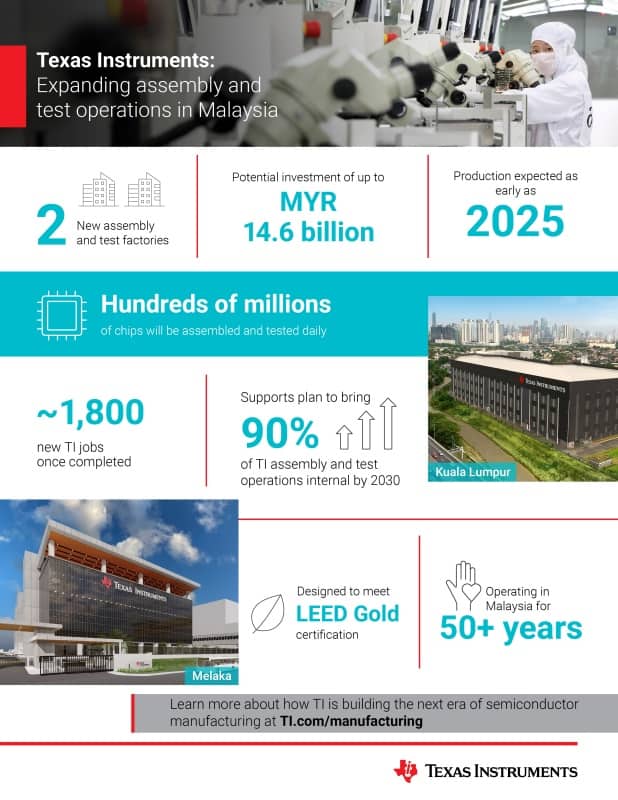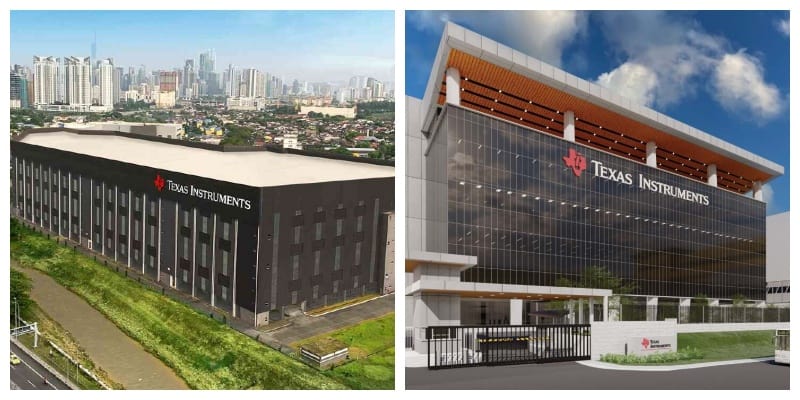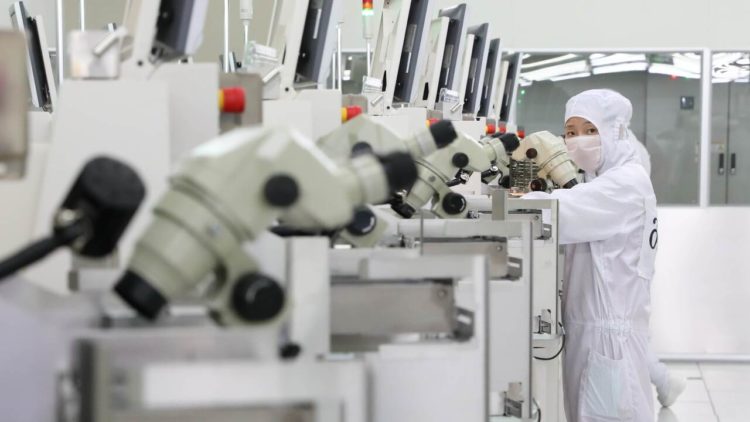Texas Instruments (TI) will expand its internal manufacturing footprint in Malaysia with two new assembly and test factories in Kuala Lumpur and Melaka. Together, these new investments will support TI's plan to bring 90% of its assembly and test operations internally by 2030 to have greater control of supply.
These new state-of-the art factories will feature advanced factory automation to assemble and test hundreds of millions of analog and embedded processing chips daily at full production that will go into electronics everywhere. Production from both sites is expected to begin as early as 2025.
“These investments are part of TI’s long-term strategy to expand our internal manufacturing capacity to support the increasing need for semiconductors and provide greater assurance of supply,” said Yogannaidu Sivanchalam, vice president for assembly and test manufacturing operations at TI.

“We have been operating in Malaysia for more than 50 years and our decision to expand our back-end manufacturing is a reflection of the talented and growing team in Malaysia that will be critical to TI’s future."
Yogannaidu Sivanchalam, TI
TI recently purchased the building next to its existing assembly and test factory in Kuala Lumpur that sits on 18 acres of land. With a potential investment of up to MYR 9.6 billion, the company plans to convert the building into an assembly and test factory with more than 1 million square feet of cleanroom space. Construction is expected to start later this year, with production to begin as early as 2025. The new factory will connect to the company's existing factory and create nearly 1,300 additional local jobs at full build.
Likewise, the US-based semiconductor giant is constructing a new, six-level assembly and test factory next to its existing Melaka assembly and test factory. The new factory will include more than 400,000 square feet of cleanroom space and will connect to TI's existing factory. With a potential investment of up to MYR 5 billion, this new factory will support up to 500 local jobs at full build and is also expected to begin production as early as 2025.
Both factories will be built using environmentally responsible construction methods that emphasise an energy-efficient design. TI aims to achieve the highest level of the Leadership in Energy and Environmental Design (LEED) building rating system for structural efficiency and sustainability: LEED Gold. Advanced equipment in the factories will reduce waste, water and energy consumption per chip, further demonstrating TI's commitment to responsible, sustainable manufacturing.

Strategic expansion
TI’s internal manufacturing operations primarily occurred at its assembly and test sites, where individual semiconductor products are separated from the wafer and assembled, packaged and tested.
Semiconductor chips begin their existence on thin slices of pure silicon. These slices – called wafers – are the basis to create up to hundreds of thousands of individual dies in TI’s wafer fabs. The wafers then are shipped to our assembly and test sites around the world, where they’re cut into the tiny semiconductor chips found in every type of electronic system – from electric vehicles to industrial robots, solar panels and satellites.
During this critical step in the manufacturing process, the dies are tailored to meet specific packaging, material and design requirements. Once assembled, they’re again tested rigorously to ensure they meet quality and relevant industry standards.

TI’s internal manufacturing operations are currently undergoing continuous expansion, modernisation and automation to support customer demand.
“The investments we’re making to expand our internal manufacturing operations, combined with our company’s in-house R&D expertise across packaging, product design and technology development, enable TI to innovate and scale across our product portfolio. This unique mix of expertise gives our customers the ability to differentiate their products through the thousands of products, packaging and configuration options TI has available,” said Mohammad Yunus, senior vice president for manufacturing operations at TI.
The expansion of the company’s global internal manufacturing operations is aimed to complement its significant strategic investments in its front-end semiconductor manufacturing process. Last year, TI announced it will expand its 300-mm wafer fab manufacturing capacity to support the continued growth of semiconductors in electronics for decades to come.

Advantages of a globally owned operations
TI has a long history of globally owned, regionally diverse internal manufacturing operations. The company has 15 manufacturing sites worldwide, including wafer fabs, assembly and test factories, and bump and probe facilities.
The company manufactures tens of billions of analog and embedded processing semiconductors annually, across approximately 80,000 different products, and delivers them to more than 100,000 customers around the globe. It sources more than 85% of products from multiple sites, enabling TI to increase flexibility and ensure business continuity and quality.
“Owning our manufacturing processes and facilities is a unique advantage we have as a company. Investing in assembly and test operations will help us build the capacity our customers need for the long term.”
Mohammad Yunus, TI
With more than 90% of its products manufactured internally by 2030, TI can provide customers with geopolitically dependable capacity for decades to come.




